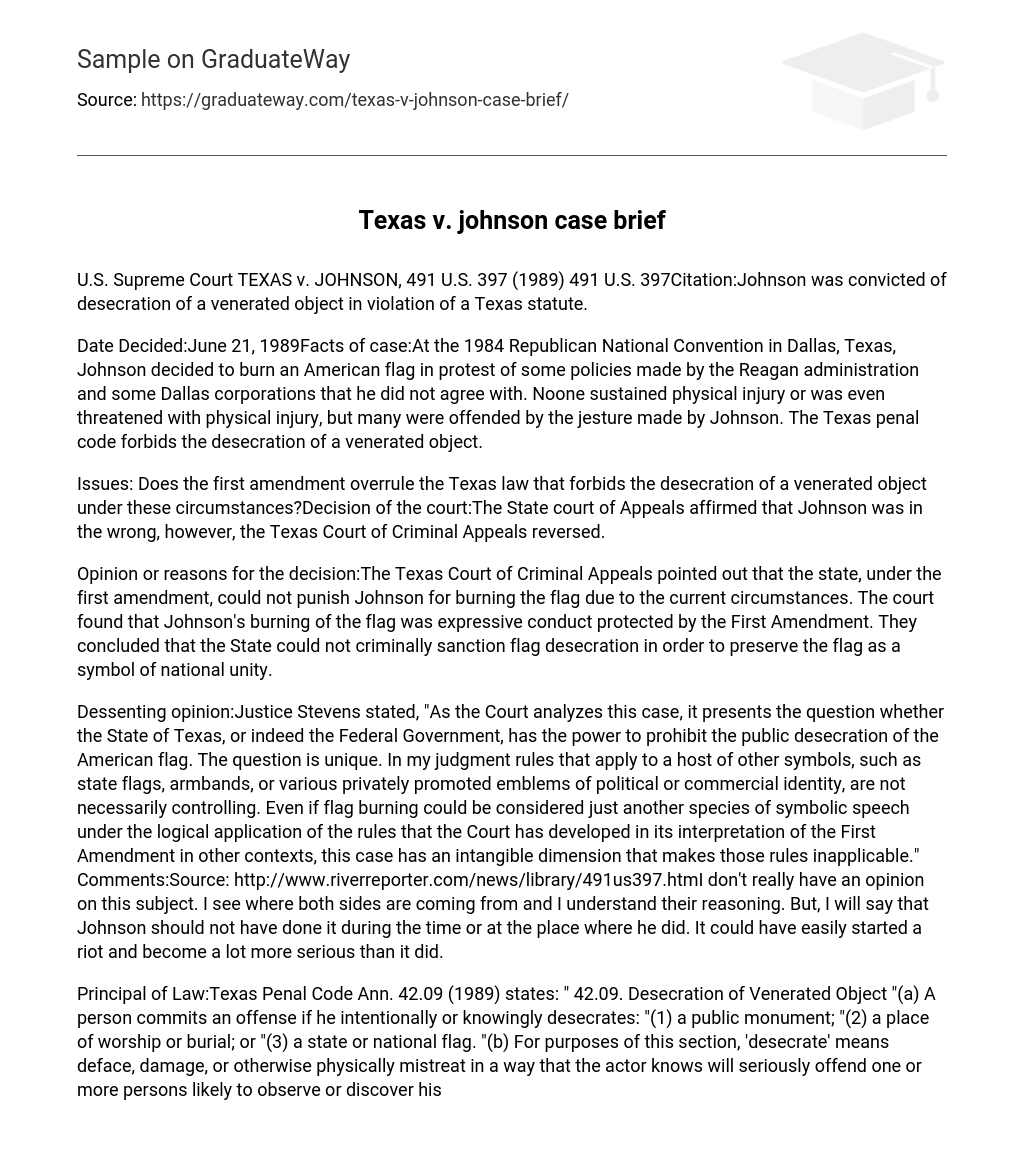U.S. Supreme Court TEXAS v. JOHNSON, 491 U.S. 397 (1989) 491 U.S. 397Citation:Johnson was convicted of desecration of a venerated object in violation of a Texas statute.
Date Decided:June 21, 1989Facts of case:At the 1984 Republican National Convention in Dallas, Texas, Johnson decided to burn an American flag in protest of some policies made by the Reagan administration and some Dallas corporations that he did not agree with. Noone sustained physical injury or was even threatened with physical injury, but many were offended by the jesture made by Johnson. The Texas penal code forbids the desecration of a venerated object.
Issues: Does the first amendment overrule the Texas law that forbids the desecration of a venerated object under these circumstances?
Decision of the court:The State court of Appeals affirmed that Johnson was in the wrong, however, the Texas Court of Criminal Appeals reversed.
Opinion or reasons for the decision:The Texas Court of Criminal Appeals pointed out that the state, under the first amendment, could not punish Johnson for burning the flag due to the current circumstances. The court found that Johnson’s burning of the flag was expressive conduct protected by the First Amendment. They concluded that the State could not criminally sanction flag desecration in order to preserve the flag as a symbol of national unity.
Dessenting opinion:Justice Stevens stated, “As the Court analyzes this case, it presents the question whether the State of Texas, or indeed the Federal Government, has the power to prohibit the public desecration of the American flag. The question is unique. In my judgment rules that apply to a host of other symbols, such as state flags, armbands, or various privately promoted emblems of political or commercial identity, are not necessarily controlling. Even if flag burning could be considered just another species of symbolic speech under the logical application of the rules that the Court has developed in its interpretation of the First Amendment in other contexts, this case has an intangible dimension that makes those rules inapplicable.”
Comments: Source: http://www.riverreporter.com/news/library/491us397.htmI don’t really have an opinion on this subject. I see where both sides are coming from and I understand their reasoning. But, I will say that Johnson should not have done it during the time or at the place where he did. It could have easily started a riot and become a lot more serious than it did.
Principal of Law:Texas Penal Code Ann. 42.09 (1989) states: ” 42.09. Desecration of Venerated Object ”
- A person commits an offense if he intentionally or knowingly desecrates: “
- a public monument; “
- a place of worship or burial; or “
- a state or national flag. “
- For purposes of this section, ‘desecrate’ means deface, damage, or otherwise physically mistreat in a way that the actor knows will seriously offend one or more persons likely to observe or discover his action. “
- An offense under this section is a Class A misdemeanor.”





